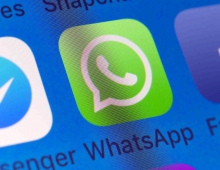
China Tightens Internet Rules
After banning free Internet telephone services China is now shutting down more than 50 web sites in its war against hackers.
The Chinese government announced yesterday that it was shutting down 53 web sites with content that was judged "pornographic or violent" or distributed free illegal copyrighted material.
Two the men who were arrested are accused by Chinese authorities of having illegally copied and shared a game from Chinese company Shanda InteractiveEntertainment.
China is determined to combat pirating and is responding to the U.S.'s pressure on this matter. In the next official meeting in April, China is requested to prove to the U.S. it has taken measures to discourage illegal copying and distribution of copyrighted material on its territory. U.S.governement has already evoked the possibillity of applying economical sanctions to China if it is not showing any efforts.
Furthermore, the Financial Times reported on Monday that China would not allow the establishment of VoIP services on its territory for the next two years in a move to protect its state owned fixed telephone line business.
Wang Leilei, chief executive of Chinese internet portal group Tom Online, which has a joint venture with Luxembourg-based telephony provider Skype, said China would not issue any licenses for computer-to-telephone calls until 2008.
China Telecom has described Skype's services as illegal, major setback to Skype, which was reportedly in talks last year with Chinese telecom operators to launch its computer-to-telephone service, SkypeOut.
Last September U.S. technology group Verso Technologies admitted that it had sold software to an unnamed major Chinese telecoms firm that would allow China to block such telephony services.The Georgia-based company apparently sold its NetSpective M-Class application filter to the Chinese government.
Two the men who were arrested are accused by Chinese authorities of having illegally copied and shared a game from Chinese company Shanda InteractiveEntertainment.
China is determined to combat pirating and is responding to the U.S.'s pressure on this matter. In the next official meeting in April, China is requested to prove to the U.S. it has taken measures to discourage illegal copying and distribution of copyrighted material on its territory. U.S.governement has already evoked the possibillity of applying economical sanctions to China if it is not showing any efforts.
Furthermore, the Financial Times reported on Monday that China would not allow the establishment of VoIP services on its territory for the next two years in a move to protect its state owned fixed telephone line business.
Wang Leilei, chief executive of Chinese internet portal group Tom Online, which has a joint venture with Luxembourg-based telephony provider Skype, said China would not issue any licenses for computer-to-telephone calls until 2008.
China Telecom has described Skype's services as illegal, major setback to Skype, which was reportedly in talks last year with Chinese telecom operators to launch its computer-to-telephone service, SkypeOut.
Last September U.S. technology group Verso Technologies admitted that it had sold software to an unnamed major Chinese telecoms firm that would allow China to block such telephony services.The Georgia-based company apparently sold its NetSpective M-Class application filter to the Chinese government.





















